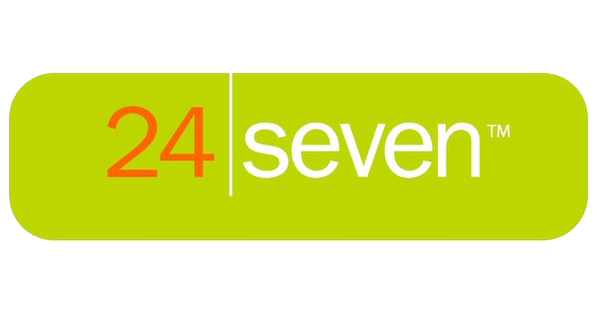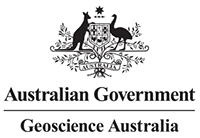Learn about TensorFlow, the engine behind AI's advancements, on our detailed glossary page
TensorFlow is an open-source software library developed by the Google Brain team for high-performance numerical computation. It emerged as a powerful framework designed to facilitate the development and training of machine learning (ML) and deep learning (DL) models. TensorFlow stands out due to its flexible architecture that allows computation on various platforms (CPUs, GPUs, and TPUs), making it accessible for both research and production. Its name derives from its ability to handle multidimensional arrays or "tensors," which are fundamental to the operations in neural networks.
A key feature of TensorFlow is its computation graph abstraction. This allows developers to create complex ML models with operations represented as nodes and data (tensors) flowing between them, which can then be executed efficiently on different hardware. This graph-based computation model aids in optimizing the calculations and automatically computing gradients—essential for backpropagation in neural networks.
TensorFlow has evolved significantly since its initial release, incorporating eager execution for imperative programming, TensorFlow Lite for mobile and embedded devices, and TensorFlow.js for running models in the browser. This evolution reflects TensorFlow's commitment to democratizing AI development and deployment across platforms and devices.
Real-Life Example: Google Photos
Google Photos uses TensorFlow to power its feature that automatically categorizes images based on the people, places, and things in them. This capability is built on complex convolutional neural networks (CNNs) that have been trained to recognize various objects and faces, showcasing TensorFlow's ability to handle large-scale, real-world deep learning applications.
TensorFlow and Machine Learning
TensorFlow provides a comprehensive ecosystem of tools and libraries for building and deploying machine learning models. It supports a wide range of ML techniques from basic linear regression to complex neural networks, offering both high-level APIs like Keras for quick and easy model building and low-level APIs for more granular control over model architecture and training processes. TensorFlow's automatic differentiation and robust optimization algorithms simplify the development of algorithms for supervised, unsupervised, and reinforcement learning.
TensorFlow in Deep Learning Projects
In deep learning projects, TensorFlow is often the framework of choice due to its scalability, flexibility, and extensive feature set. It's particularly favored for developing convolutional neural networks (CNNs) for image recognition, recurrent neural networks (RNNs) for sequence analysis, and transformers for natural language processing. TensorFlow 2.0 and beyond have emphasized simplicity and ease of use, with Keras integration making it more approachable for beginners while retaining the power and flexibility needed for advanced research.
Business Applications of TensorFlow
TensorFlow has been adopted by numerous businesses across industries for a variety of applications. In finance, it's used for fraud detection and algorithmic trading. In healthcare, TensorFlow facilitates patient diagnosis and treatment personalization through medical image analysis. In retail, it powers recommendation systems and customer sentiment analysis, enhancing customer experience and operational efficiency.
Integrating TensorFlow with Existing Infrastructure
Integrating TensorFlow into existing IT infrastructure involves leveraging its compatibility with various platforms and its ability to interface with other programming languages and data sources. TensorFlow Serving, for instance, provides a flexible, high-performance serving system for machine learning models, designed for production environments. TensorFlow's comprehensive ecosystem ensures seamless integration with existing data pipelines, cloud services, and hardware accelerators.
Case Studies: TensorFlow Success Stories
One notable success story is Airbnb's use of TensorFlow to categorize listing photos, improving the user experience by highlighting the most relevant property features. Another example is Coca-Cola, which employed TensorFlow to automate the analysis of point-of-sale data, enhancing inventory management and marketing strategies.
Challenges in Adopting TensorFlow
Adopting TensorFlow can present challenges such as the steep learning curve for beginners, particularly with low-level APIs. Ensuring compatibility with specific hardware and optimizing performance for large-scale applications can also be complex. However, TensorFlow's extensive documentation, tutorials, and community support significantly mitigate these challenges.
TensorFlow Community and Resources
The TensorFlow community is a vibrant ecosystem of developers, researchers, and businesses sharing knowledge and innovations. Resources include extensive documentation, tutorials, courses, forums, and special interest groups (SIGs) focused on areas like TensorFlow.js, TensorFlow Lite, and model optimization. This community support accelerates learning and problem-solving within the ecosystem.
Future Developments in TensorFlow
The future of TensorFlow is geared towards making AI more accessible and performant across a broader range of devices. This includes enhancements in AI model efficiency, further improvements in user-friendliness, and expanding capabilities in areas like federated learning and edge computing. TensorFlow's commitment to open-source development ensures that it will continue to evolve in response to the needs of a diverse user base, driving innovation in AI research and application.
Frequently Asked Questions:
1. Why is TensorFlow considered a leading framework for AI development?
TensorFlow is considered a leading framework for artificial intelligence (AI) development for several compelling reasons. First, its comprehensive, flexible ecosystem supports both researchers and developers in creating sophisticated AI models that can easily transition from experimentation to production. TensorFlow's architecture allows for computation across a variety of platforms—CPUs, GPUs, and TPUs—enabling it to handle tasks from small to large scales efficiently.
The framework's ability to manage deep learning networks with high-level APIs, while also offering low-level APIs for fine-grained control, caters to a broad spectrum of users. Its automatic differentiation feature, which calculates gradients automatically, simplifies the implementation of backpropagation, making the development of neural networks more straightforward and less error-prone.
TensorFlow's support for eager execution makes it user-friendly by allowing operations to be evaluated immediately without building graphs, facilitating a more intuitive interface for dynamic model development. This feature, combined with TensorFlow's comprehensive toolset—including TensorBoard for visualization, TensorFlow Lite for mobile and embedded devices, and TensorFlow.js for web applications—ensures its adaptability to various development needs.
Real-Life Example: Airbnb
Airbnb's use of TensorFlow to improve their guests' experience by categorizing listing photos illustrates the framework's robustness in handling real-world, large-scale applications. By automatically identifying and organizing photos by room type, TensorFlow helps Airbnb present listings more attractively and informatively to potential guests.
2. Can TensorFlow be used for projects beyond machine learning and deep learning?
Yes, TensorFlow's capabilities extend beyond traditional machine learning (ML) and deep learning (DL) projects. Its flexible architecture and broad API support enable applications in a variety of domains, including but not limited to:
- Data Processing and Analysis: TensorFlow can handle large datasets for preprocessing and transformation, making it useful for data-heavy projects outside of ML/DL contexts.
- Scientific Computing: Researchers can leverage TensorFlow for complex numerical computations in fields like physics and engineering.
- Generative Models: Beyond classification and prediction, TensorFlow is adept at generating new content, from artwork to synthetic data for training other models.
3. How does TensorFlow support the deployment of AI models in production environments?
TensorFlow supports AI model deployment in production environments through TensorFlow Serving, a flexible, high-performance serving system designed for machine learning models. It provides out-of-the-box integration with TensorFlow models, simplifying the process of deploying new algorithms and experiments while maintaining the same server architecture and APIs. TensorFlow Serving supports canary rollouts, A/B testing, and is optimized for serving in high-performance environments.
4. What are the prerequisites for a business to start using TensorFlow?
To start using TensorFlow effectively, a business typically needs:
- Technical Expertise: A team with knowledge in Python programming, machine learning concepts, and, ideally, experience with TensorFlow or similar frameworks.
- Computational Resources: Access to CPUs/GPUs/TPUs for training and inference tasks.
- Data Infrastructure: A robust data collection, storage, and preprocessing infrastructure to feed clean, high-quality data into TensorFlow models.
5. How does TensorFlow ensure the scalability of AI applications?
TensorFlow ensures the scalability of AI applications through its distributed computing capabilities, which allow models to be trained and deployed across multiple CPUs, GPUs, and TPUs. TensorFlow's architecture is designed to optimize computational resources efficiently, enabling parallel data processing and model training. This scalability is critical for handling large datasets and complex models typical in enterprise-level applications.
6. What are the advantages of TensorFlow over other AI frameworks?
Advantages of TensorFlow include:
- Comprehensive Ecosystem: From model development to deployment, TensorFlow provides a wide range of tools and libraries.
- Cross-Platform Compatibility: TensorFlow models can be deployed on various platforms, including mobile and web, through TensorFlow Lite and TensorFlow.js.
- Community and Support: TensorFlow benefits from strong community support, extensive documentation, tutorials, and forums, facilitating troubleshooting and innovation.
7. How can TensorFlow be used to enhance customer interaction platforms?
TensorFlow can enhance customer interaction platforms by powering chatbots and virtual assistants with natural language processing (NLP) capabilities, enabling more natural and effective communication with users. It can also analyze customer feedback and behavior in real-time, providing personalized recommendations and support, thereby improving the overall customer experience.










